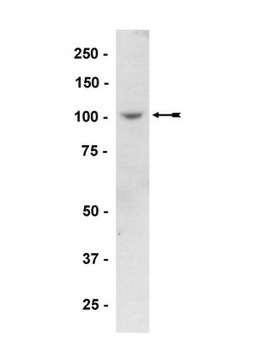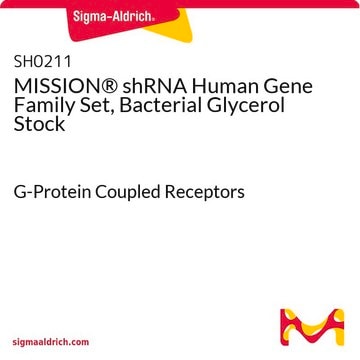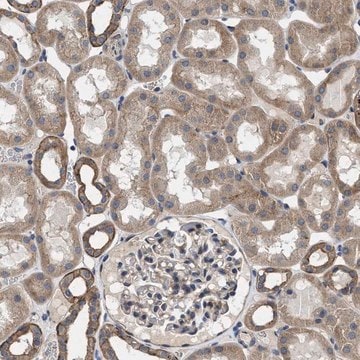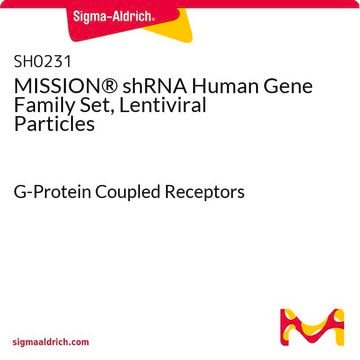ST1042
Anti-PKD2 Rabbit pAb
liquid, Calbiochem®
Synonym(e):
Anti-Protein Kinase D2
About This Item
Empfohlene Produkte
Biologische Quelle
rabbit
Qualitätsniveau
Antikörperform
affinity isolated antibody
Antikörper-Produkttyp
primary antibodies
Klon
polyclonal
Form
liquid
Enthält
≤0.1% sodium azide as preservative
Speziesreaktivität
human
Hersteller/Markenname
Calbiochem®
Lagerbedingungen
OK to freeze
Isotyp
IgG
Versandbedingung
wet ice
Lagertemp.
2-8°C
Posttranslationale Modifikation Target
unmodified
Angaben zum Gen
human ... PKD2(5311)
Allgemeine Beschreibung
Immunogen
Anwendung

Immunoblotting (1:500-1:5000)
Immunoprecipitation (1-4 g/mg lysate)
Verpackung
Warnhinweis
Physikalische Form
Rekonstituierung
Hinweis zur Analyse
HEK 293 cells
Sonstige Hinweise
Sturany, S., et al. 2002. J. Biol. Chem.277, 29431.
Sturany, S., et al. 2001. J. Biol. Chem.276, 3310.
Rechtliche Hinweise
Not finding the right product?
Try our Produkt-Auswahlhilfe.
Lagerklassenschlüssel
12 - Non Combustible Liquids
WGK
nwg
Flammpunkt (°F)
Not applicable
Flammpunkt (°C)
Not applicable
Analysenzertifikate (COA)
Suchen Sie nach Analysenzertifikate (COA), indem Sie die Lot-/Chargennummer des Produkts eingeben. Lot- und Chargennummern sind auf dem Produktetikett hinter den Wörtern ‘Lot’ oder ‘Batch’ (Lot oder Charge) zu finden.
Besitzen Sie dieses Produkt bereits?
In der Dokumentenbibliothek finden Sie die Dokumentation zu den Produkten, die Sie kürzlich erworben haben.
Unser Team von Wissenschaftlern verfügt über Erfahrung in allen Forschungsbereichen einschließlich Life Science, Materialwissenschaften, chemischer Synthese, Chromatographie, Analytik und vielen mehr..
Setzen Sie sich mit dem technischen Dienst in Verbindung.